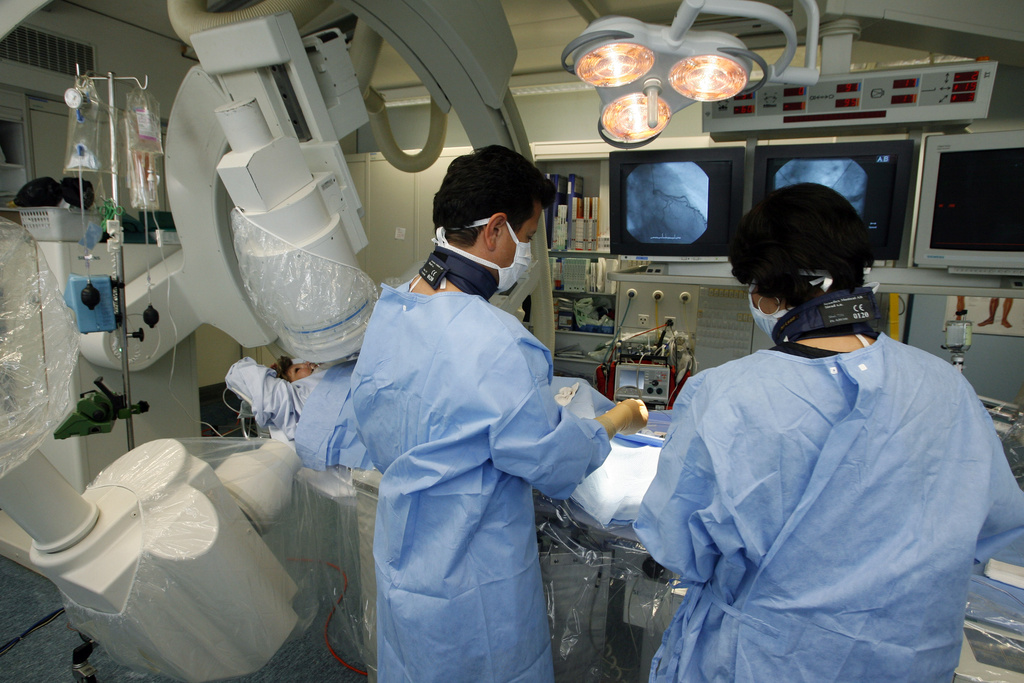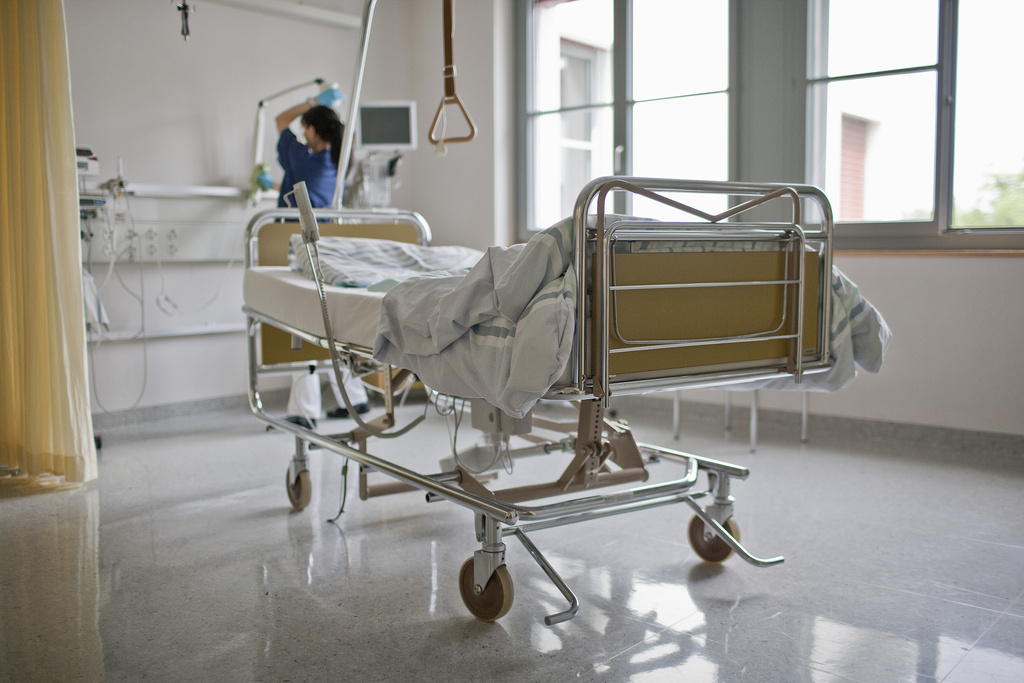Study finds preventive medicine “could do better”

Quality of preventive healthcare in Switzerland is generally good, but in some areas, such as breast or colon cancer, it is lagging behind, a study has found.
The research is the first of its kind in Switzerland – and in continental Europe – to look specifically into the quality of preventive and early-diagnosis medicine. The leader in this field is the United States.
The study, which covered the university hospitals in Zurich, Geneva, Lausanne and Basel, has been published in the US-based Journal of General Internal Medicine.
It took data from 1,002 patients aged between 50 and 80 years old (44 per cent women) over a period of two years.
The team led by Nicolas Rodondi from Lausanne University found that, overall, patients received 69 per cent of recommended preventive care, such as tests and screenings. The researchers were surprised at the results.
“We found for many measures we were as good as the US, despite Switzerland not monitoring the quality of care regularly,” Rodondi said. But he added that in some areas, such as the two cancers that are useful to screen – colorectal and breast cancer – Switzerland was “far behind the US”.
“We were also behind in influenza jabs.”
“For cardiovascular prevention, smoking cessation or care for diabetes, we were close to the care in US,” he added.
As a comparison: smoking cessation advice for patients stood at 74 per cent (using the study’s indicators) in the US and 72 per cent in Switzerland.
But for breast cancer screening, the US posted 72 per cent (40 per cent in Switzerland) and 55 per cent for colon cancer screening (35 per cent in Switzerland).
Rodondi said the more complex process of cancer screening could explain why Switzerland, where quality is not routinely monitored as in the US, was lagging behind in these indicators. The country did best in routine and easy tests.
Men over women
The study also found that preventive care was better in men than among women.
“There have also been several studies showing that preventive care for cardiovascular risk factors was lower for women because doctors and women were more afraid of cancer than cardiovascular disease, despite it also being quite common in women,” Rodondi explained.
“But we found all quality of care measurements were lower for women so there seems to be a gender disparity, which should be addressed.”
Rodondi says quality of care needs to be measured more systematically in Switzerland, whose health system provides universal health care coverage.
Currently in Europe, only Britain carries out such systematic monitoring. Lack of electronic patient records – which are commonplace in the US – also makes life more difficult, even if they are currently being implemented in Switzerland.
Only by flagging up the gaps can the service be improved and neglected groups, women in this case, can be identified, he added.
Room for improvement
Ursula Zybach, who is in charge of prevention at the Swiss Cancer League, agrees that there are areas for improvement in cancer screening in Switzerland. The country does not have an independent national screening committee, as Britain does for example, to advise on all aspects of screening.
Another problem is that, under Switzerland’s federal system, the cantons are in charge of screening programmes.
“Approximately half of Switzerland is covered by breast cancer screening and half is not, and there is no colon cancer screening programme at all,” Zybach told swissinfo.ch.
“In our opinion it’s important that screening is done in screening programmes,” she said. For breast cancer, for example, this would be free for women aged 50 to 70 years. This would ensure that some women, for example, those on low incomes, would not miss out.
Rodondi says that other studies have shown that overall Switzerland does not spend as much as its European neighbours on preventive medicine.
“Preventive care costs at the beginning but we know in the long term that it can improve the health of patients and help them remain in a healthy state longer,” he said. “So there is an important margin for improvement in Switzerland.”
Tumours are the second cause of death in Switzerland.
30% of men and 23% of women die of cancer-related deaths.
In total 16,000 people die of cancer every year, according to the Federal Statistics Office.
Breast cancer is the most common form in women and colon cancer is in the top three for both men and women.
The Quality of Primary Care in a Country with Universal Health Care Coverage was published in the Journal of General Internal Medicine
Four university hospitals were involved: Zurich, Basel, Geneva and Lausanne.
Data from 1,002 patients aged 50 to 80 years old was examined over the years 2005-2006.
The study was based on international criteria.

In compliance with the JTI standards
More: SWI swissinfo.ch certified by the Journalism Trust Initiative













You can find an overview of ongoing debates with our journalists here . Please join us!
If you want to start a conversation about a topic raised in this article or want to report factual errors, email us at english@swissinfo.ch.